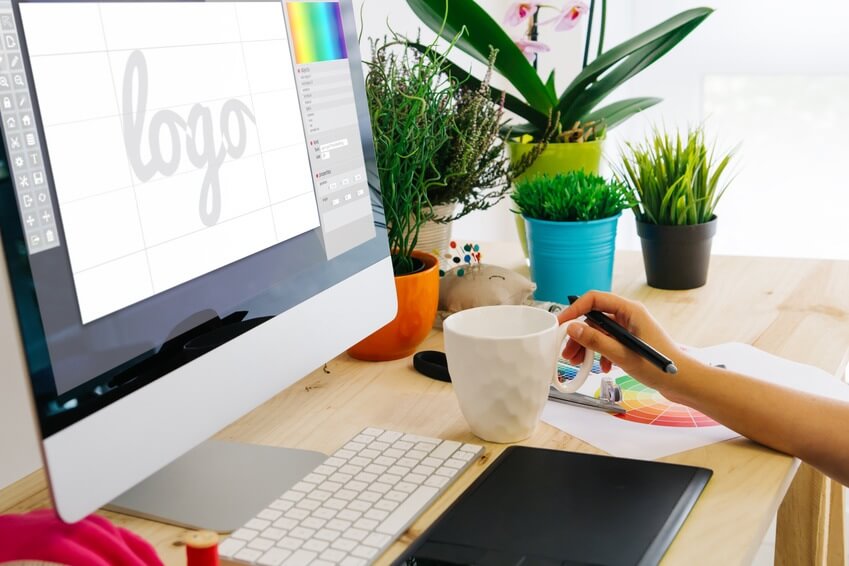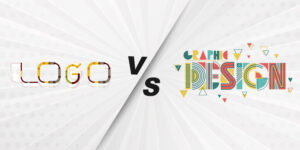
Your brand’s identity is how you present it to the world and how you create an impression with it. Without needing to use texts and words, images are considered a powerful means of communication. Thus, they’re more persuasive because they speak from an emotional and intrinsic place. This potent communication tool carries a great deal of responsibility too, so you need to be cautious about the messages your brand is sending.
For this reason, a visually appealing identity can enhance the beauty of a company’s online presence. Aside from contributing to the overall user experience (UX), it’s also an effective way to demonstrate a brand’s image and personality.
Understanding Visual Identity
Among the components of your visual identity are your logo, imagery, typeface, and colors. You can list each of these crucial elements, but how do you go deep enough, so customers understand you as an overall reliable brand?
It’s recommended to collect inspiration from various sources if you’re building your visual identity from scratch. There are certainly no limits on where you can find ideas for your visual identity. Use social media, search for pictures and postcards, and know how to choose your Squarespace theme. Keep a list of what you like and what you don’t like about existing brands. The importance of knowing your audience can’t be overstated. Your core values should always guide the way you relate to them.
A brand needs to be developed based on a clear, unwavering understanding of its purpose. The first thing you should do is create your name even if it’s just a simple font logo. Symbols and icons can be added later to your visual identity. You can then discover more of your brand’s goals and navigate them little by little.
Elements Of Visual Identity
An organization’s identity defines its visuals. The messenger uses several elements to create meaning just as words do. Take a look at these components of a coherent visual identity:

Graphics:
A graphic is a designed or drawn image asset in association with visual identity. It can simply be a logo or a distinctive picture signifying the respective brand. In addition, it can be more intricate such as entailing icons or even animations.
Typography:
In branding, typography refers to the way your text is shaped or styled. Fonts have many qualities including varying levels of legibility, and each of them can affect the viewer differently. When it comes to visual identity, you should consider making an alphabet logo or wordmark, the font for the headline, and the font for the body copy. These should be easy to read even from a reasonable distance.
Color Schemes:
Brands are identified by specific shades, hues, and tints within a color scheme. In the right hands, colors can evoke some of the most powerful emotional reactions from your prospects.
Images:
In advertisements, imagery can refer to any photo, video, or anything serving as a living image of a brand. A designer must make sure visual identities only include images representing the brand’s identity and those reflecting its customers.
Also See: How Web Development Helps Build Long-Term Relationships with Customers?
How Visual Identity Influences Your Brand
Finally, the information below will let you know how visual identity can improve user experience and impact your brand. It can strengthen your connection with your customers in the following ways:
1. Sets The Right Tone
Having a theme when designing websites and creating visual content for marketing is central to communication. These mediums will decide how a brand speaks to your target audience as first impressions are formed when visitors enter your website. Visitors are more likely to stay on your website if they’re satisfied with what they see. On the other hand, a person will leave within the first few seconds without reading if they’re not contented.
The bounce rate on a bank’s website would be higher if it’s designed like a kids’ digital platform. Therefore, make sure the visual representation of your brand and web design corresponds with the brand identity. However, don’t overlook aesthetics because they also play a significant role.
It’s essential to have a design that’s visually appealing and relevant without compromising any of these characteristics. Considering these points, launching your website conveniently is now possible.
2. Achieves Easier Recognition
How can you recognize people more quickly than others? You probably check how they look, their posture, how they speak, and how they behave. People all have specific characteristics making them different than others. Occasionally, however, changing the hair color or dressing can make the person unrecognizable.
The same is true for brands. Color modifications may be a matter of preference, but you need to watch out for this kind of change implemented in your brand image. Even the most minor details are crucial.
To successfully incorporate them into the whole brand, you should know how to apply them. It’s best to stay on a pre-determined path. Otherwise, recipients may have difficulty recognizing you.
3. Delivers Brand Messages Effectively
A picture speaks a thousand words, and this is the essence of visual identity. According to a study, the brain processes approximately 90 percent of all information through visual cues. That’s why visual identity and content are crucial for describing what the company stands for and demonstrating it visually.
The recipe for a successful brand isn’t a one-size-fits-all approach as every brand is unique. In addition to typography, layout, and icons, color hierarchy reveals how the business wants to be perceived.
Marketing campaigns use visuals in the same way. A high-level look at visual content on social media may give you a good idea of the value a brand has and whether you should buy from it.
Conclusion
An organization’s visual identity tells the story of its brand and connects them with its audience. A message with the wrong intent can lead to dire consequences since it’s an effective way of distributing information.
It’s essential to understand your own brand identity to guide your visual journey, but the best way to get a logo and branding that’s right for you is to work with a professional. Ensure to create a compelling and unique visual identity for your brand that’ll result in customer satisfaction and loyalty in the long run.
How Visual Identity Impacts Branding And User Experience






